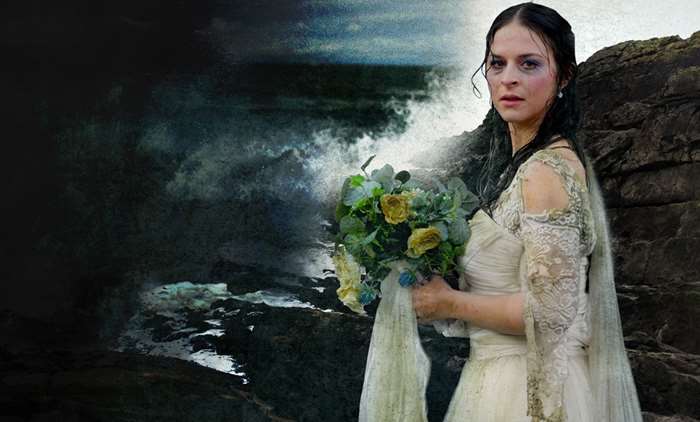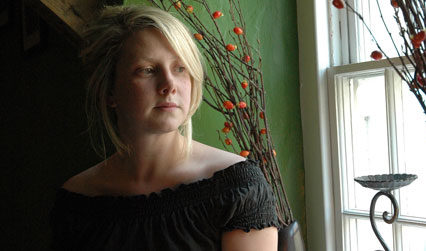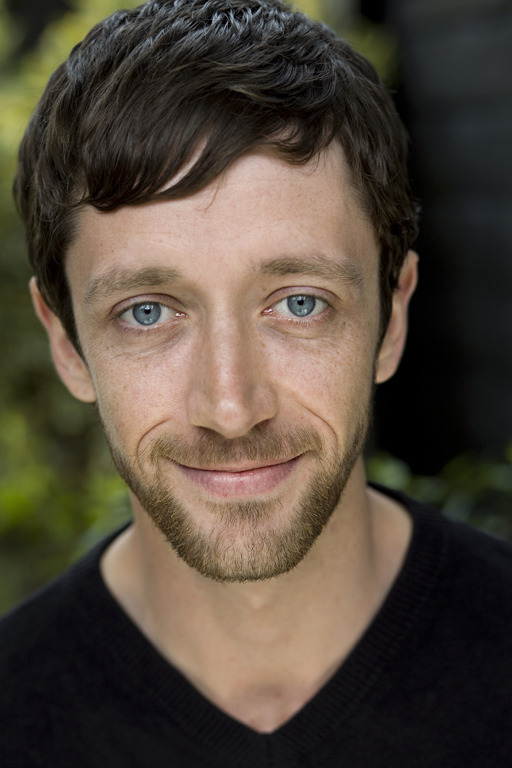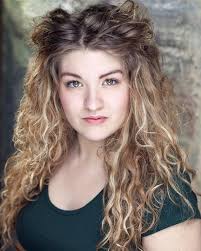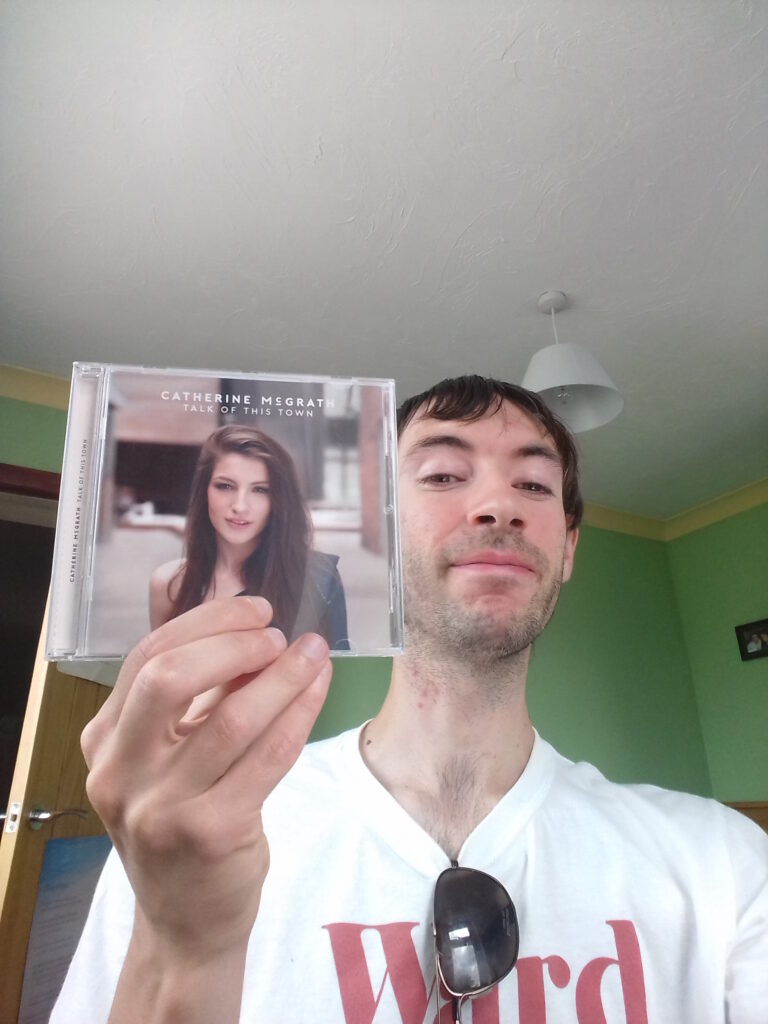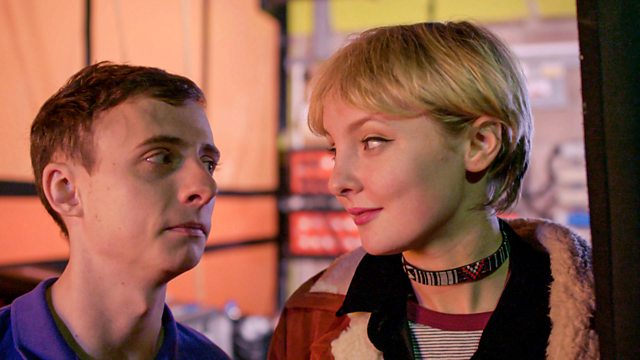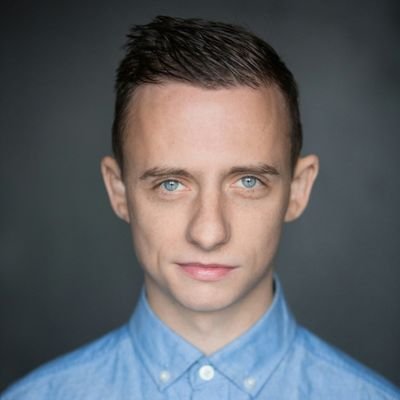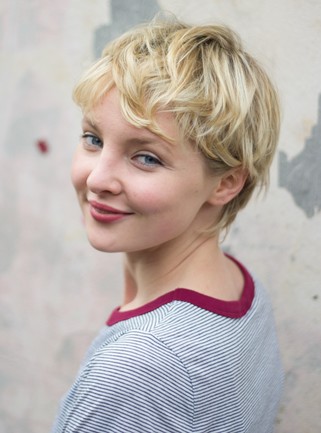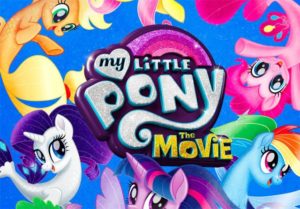 (5 / 5)
(5 / 5)
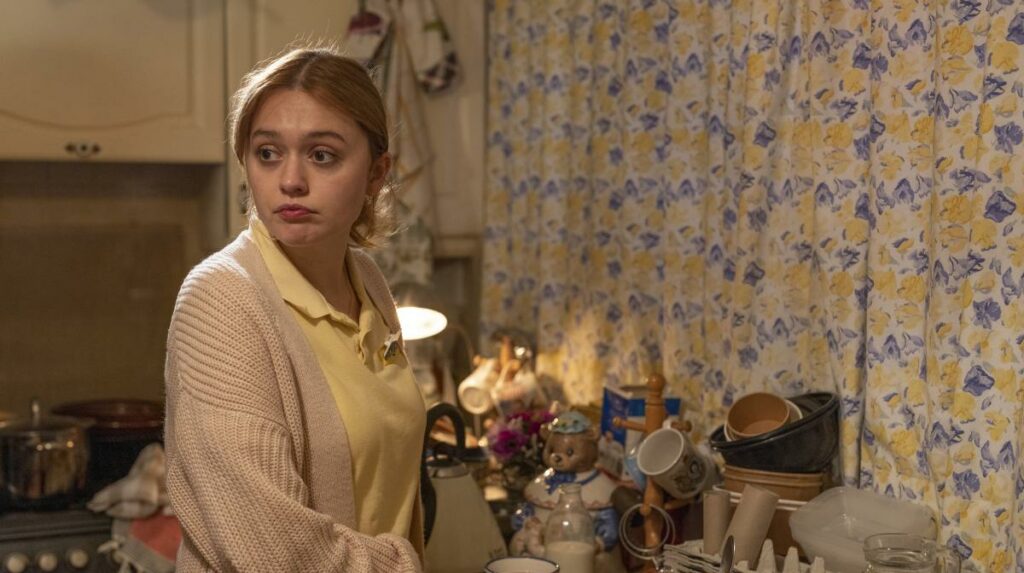
It is a clique to say that I laughed and cried at Channel 4’s anthology series, On the Edge, but it’s true. The three films, devised by new and emerging writers, are stirring, disturbing, entertaining and gripping. Each of them explores the impact of mental health in families through parent-child relationships in ways that are innovative, empowering, and unapologetic. They make for exceptional viewing in their own right; shown together, they become an unmissable 90-minutes of superb drama. I devoured them in a single sitting.
The first, ‘Mincemeat’, by Samantha O’Rourke, is a funny and moving tale starring Aimee Lou Wood. Jane is fresh out of school, working in a shoe shop, trying her best to be a good daughter to her controlling mum (Rosie Cavaliero). When she meets Nish, a boy she had a crush on in school, a sweet romance blossoms between them. However, the far-right views of Jane’s mum cause an irreparable rift that sees the lovers separate but, ultimately, leads Jane to find a sense of purpose. Nikhil Palmer (Nish) and Wood are perfectly suited, portraying the social awkwardness, first-kiss innocence, and gentle encouragement of a developing relationship with rich plausibility. Palmer’s kindness is in direct contrast to the harshness of Cavaliero, who plays Jane’s mother with a good deal of unconscious irony whilst injecting a slight empathy that reveals the pain behind much of her behaviour. She uses the death of her husband, Jane’s father, to guilt trip her children when it suits her, creating a distorted view of him that is blown apart in a moment of revelation that brings Jane freedom. What O’Rourke manages to do so deftly is to work through the underlying issues and motivations behind these characters with a delightful touch of humour. It ensures their humanity is not lost to a dark political underbelly that can otherwise lead to simplistic caricatures. The soundtrack only contributes to the wealth of emotion that exudes through the screen.
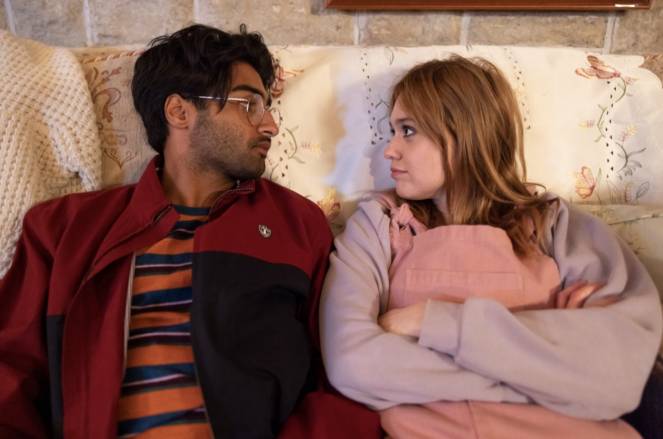
The emotion is no less pronounced in the second film, ‘Cradled’, by Nessah Muthy. Here, it is the extraordinary performance of Ellora Torchia as new mum Maia that makes for a compelling watch. She has a seemingly comfortable and ideal life. However, underneath the surface, something more sinister is stirring. She begins to hear a voice, and thinks her baby is in danger. What is witnessed over an enthralling and gut-wrenching half-hour is a descent into mental illness that creates real fear. That fear is so palpably felt through the screen that the tension becomes unbearable at times. Torchia really does embody her character, achieving a verisimilitude that causes genuine terror for its audience. It is not so much the effective horror tropes used in the telling of this story that contribute to this real anxiety as the fact that it involves a little child who appears to be actually at risk such is Torchia’s ability in conveying the awful experience of Maia. Muthy writes in such a way as to give her protagonist a sense of agency whilst simultaneously losing some of that agency to darker forces. The supporting characters are all culpable to some degree of ignoring or belittling her awareness that something is not right. The drama thus becomes a kind of rallying cry to all of us to take mental health seriously. It is, in part, a depiction of the consequences of failing to do so adequately. I breathed a huge sigh of relief at the optimism of its final scenes.
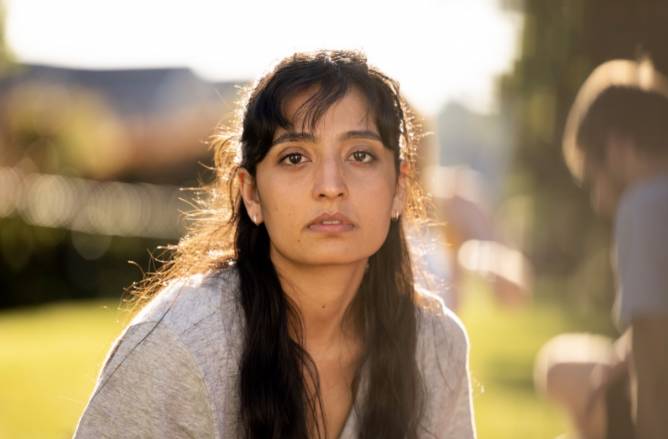
Optimism also marks the final film, ‘Superdad’, by Daniel Rusteau. Not before an incredible amount of nerves have been shredded however. When Keon (Martin McCann) turns up at his ex-partner’s house to wish his son a happy birthday, he gets the door slammed shut in his face. He is determined to make Wesley’s day special though, so he waits until he is walking to school to take him on a road trip that, slowly but surely, is not all it’s crept up to be. Rusteau drip-feeds information that gradually causes unease both for the viewer and Wesley (Joseph Obasohan). First about the car; then a quick dash away from a café; and then, finally, a confrontation at a petrol station. The interaction between the characters at this final point cause the façade of Keon to fall to such an extent as to give rise to worry. Obasohan is so adept at portraying the doubt clearly arising in his character’s mind that, coupled with the juddery movements of the handheld camera accompanying McCann, it is difficult not to be immersed in the tension of the situation. Similarly, his strength at resisting his dad’s calls to get back in the car when he realises the facile nature of his explanations is deeply felt. It conveys a maturity that, like Wood’s Jane, surpasses that of the adult parent, revealing a wisdom and thirst for emotional honesty in young people that can too often be ignored or go unappreciated by their elders. It is the recognition of this at the film’s end that makes it all the more beautiful and heartfelt.
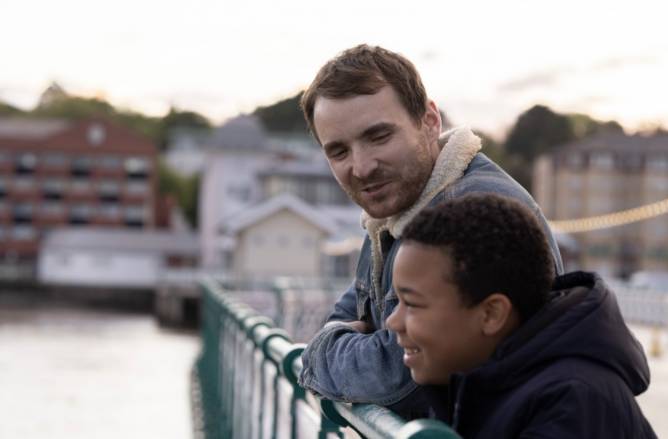
Together, these films express the effects of mental health within modern British families. They are stories told with sensitivity; thrilling yet heartfelt. Filmed across Wales, and made with the support of Creative Wales, they offer the opportunity for new and emerging talent both on and off camera to gain experience working on a production that is on the cutting-edge of storytelling and broadcast on a mainstream channel. This is what public-service broadcasting is for. The three writers that have had the opportunity to showcase their work on such a platform are all deserving of further commissions. If their future stories are as veracious and enjoyable as these half-hourly instalments have been then their future looks bright. Go check them out if you haven’t already. They are simply excellent.
All three films can be viewed on 4OD here.

Gareth Williams

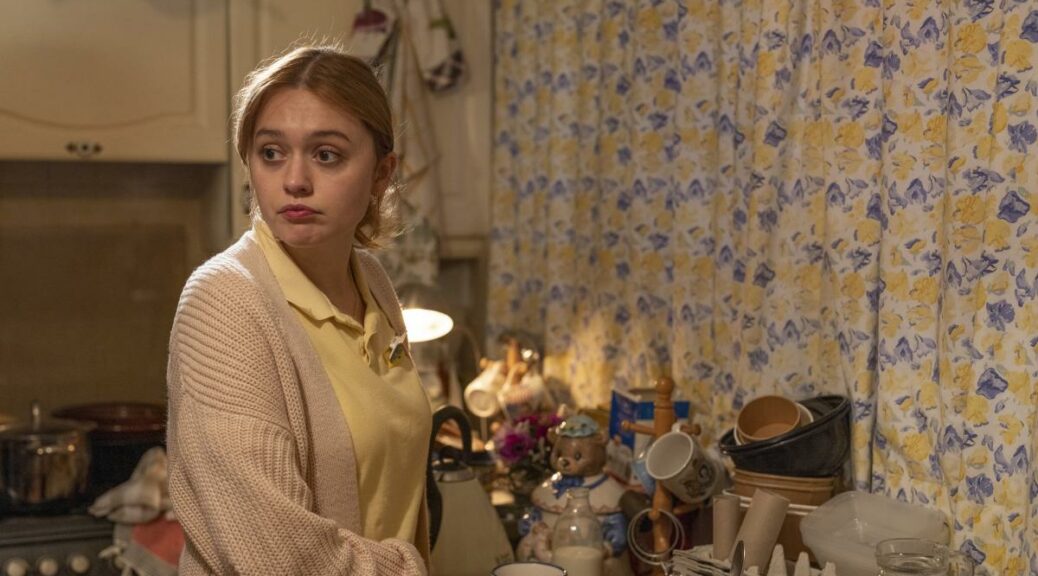
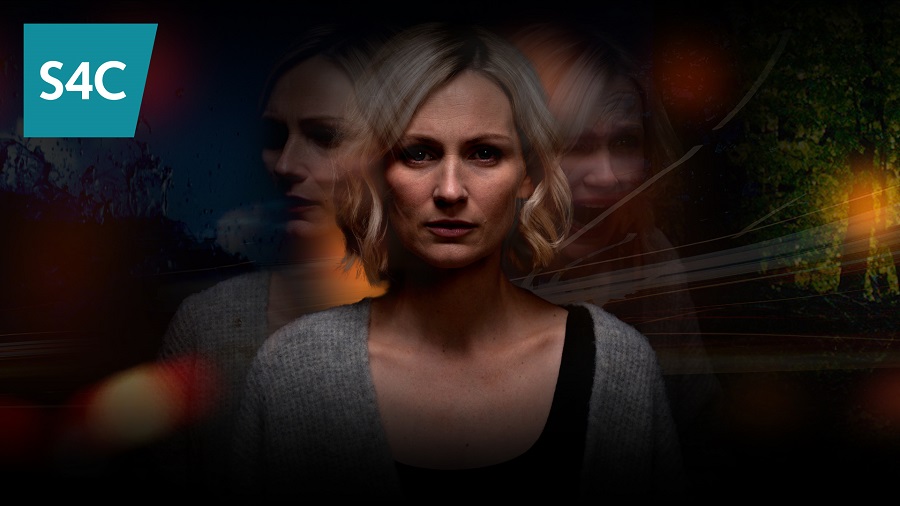
 (4 / 5)
(4 / 5)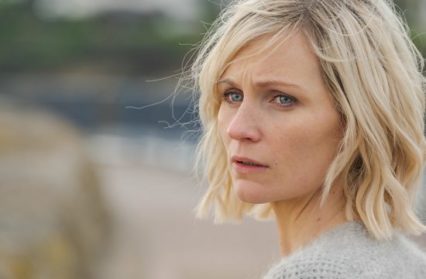
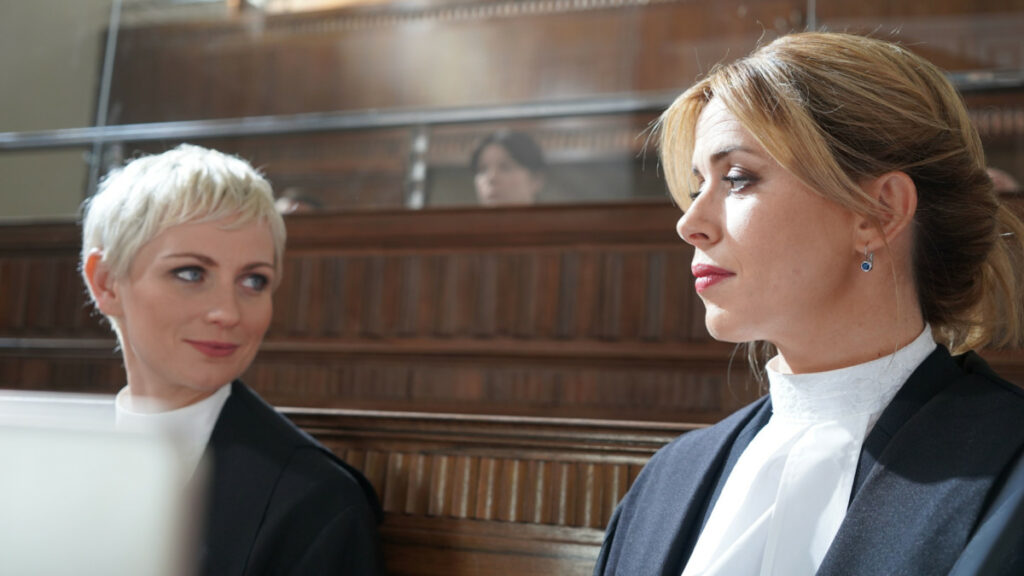
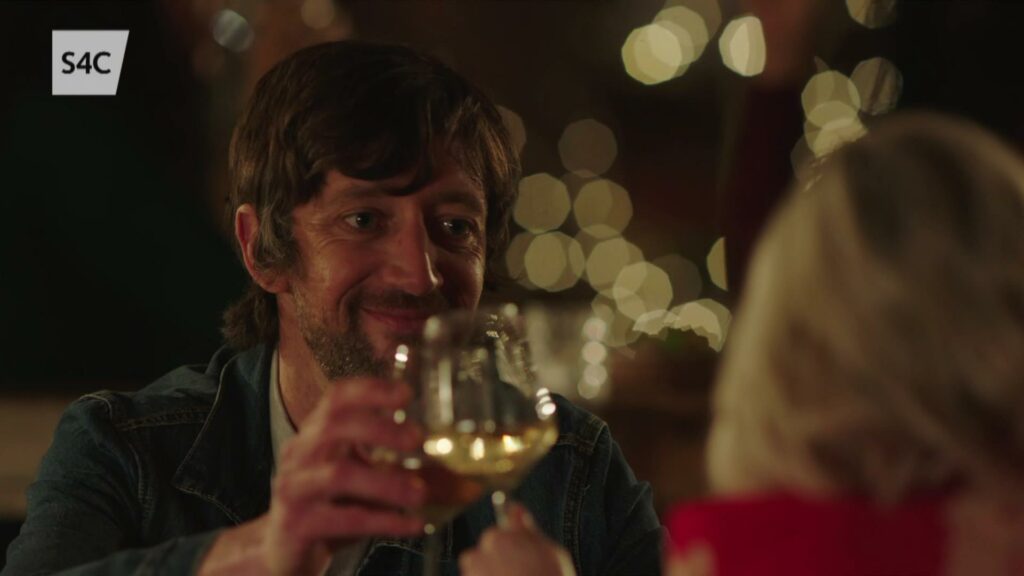
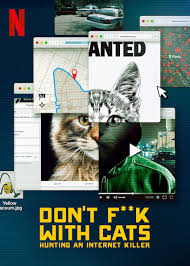
 (3 / 5)
(3 / 5)